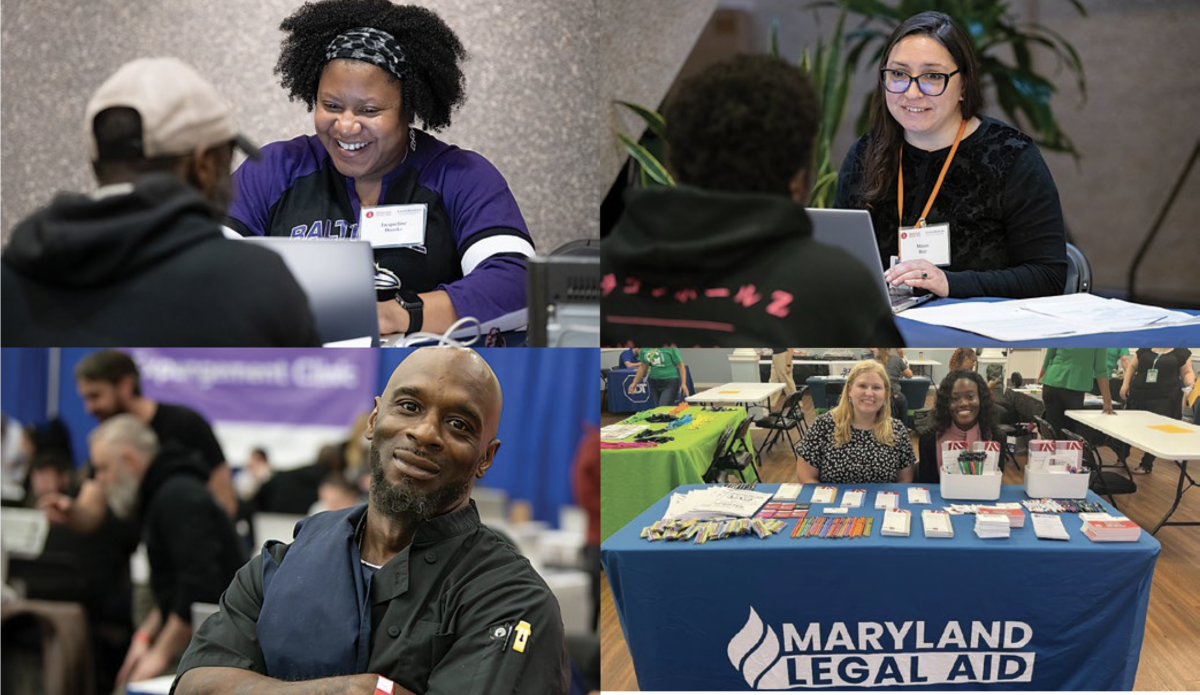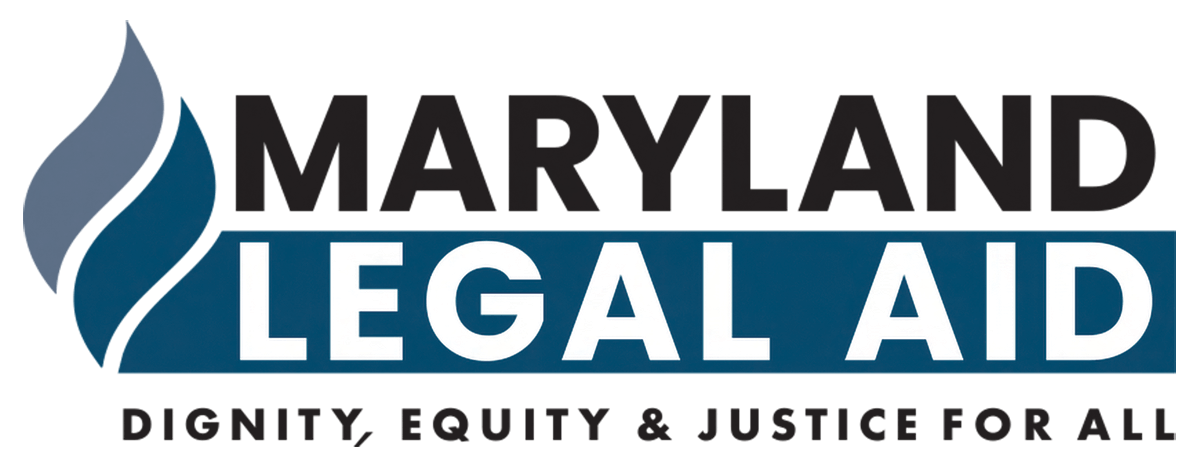
Maryland Legal Aid

Maryland Legal Aid is the largest and most comprehensive provider of free civil legal services in Maryland. Our dedicated legal staff work hard to protect the rights of our most vulnerable neighbors who often have nowhere else to turn in times of crisis.
For more than 100 years, Maryland Legal Aid has provided transformative legal help to low-income people and families in Maryland to address their most fundamental legal problems. From 12 offices around the state and through our community-based clinics, we help clients preserve and access safe and affordable housing, maintain custody of their children, and be safe from domestic violence. We increase our clients’ economic security by defending against consumer debt, including foreclosures and tax sales, removing barriers to employment, and accessing critical income supports such as unemployment, food stamps, and other vital public benefits.
Through impact litigation and advocacy, MLA also works to enact systemic change by challenging laws, regulations, and practices that disproportionately harm low-income or marginalized communities.
These efforts not only address immediate injustices but also pave the way for lasting improvements in laws and policies to significantly benefit underserved communities in the long run.
MLA relies on the generosity of donors and volunteers to make this critical work possible. Please consider making a contribution today by scanning the QR code below or visiting www.mdlab.org/donatenow. Your donation plays a vital role in helping clients achieve justice, restore hope, and move forward.
VISION
Dignity, Equity, and Justice for all
MISSION
We advocate with and for Marylanders experiencing poverty to achieve equity and social justice through free civil legal services, community collaboration, and systemic change.
YOUR SUPPORT HELPS MARYLANDERS:
• Save their homes from eviction or foreclosure.
• Obtain protection from domestic violence.
• Secure custody of their children.
• Acquire critical health and income benefits.
• Remove barriers to employment.